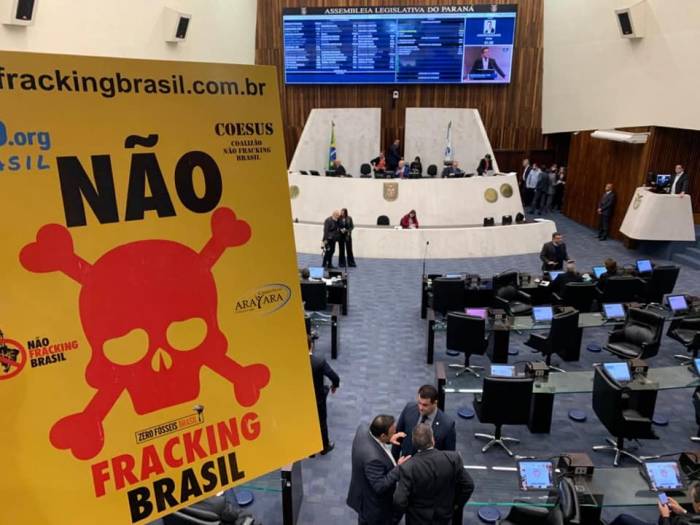Right now, COESUS, the No Fracking Brazil coalition, is speaking at the country’s first public hearing to debate the impact of fracking nationwide. The hearing is being held by the Committee on Agriculture and Agrarian Reform (CRA), in conjunction with the Committee on the Environment (CMA). It’s a historic day for everyone who has been working on this campaign to keep fossil fuels in the ground.
Follow @350Brasil on Twitter for live updates from the hearing in Portuguese
Follow @350 for updates in English.
Already, shale oil and gas exploration in Brazil’s municipalities is threatening families’ health, stability, and drinking water. This is in exchange for a promise of progress that will last no more than 30 years and risks permanently damaging the local environment.
But campaigners have been hard at work organizing city by city for 6 years to ban fracking in Brazil. They’ve marked big wins recently with a state-wide ban in Paraná in late June and, earlier today, the governor signed off on a ban in Santa Catarina state passed in July. Over the years, teams have visited hundreds of cities to speak to people about the very real impacts that the technique could bring. There were thousands of actions and materials distributed in lectures, workshops, public hearings, meetings with the community, mayors, councilors, deputies and senators.

City by city, the various local communities have come to understand the importance of protecting their territories through municipal laws. State by state, deputies and governors are acting to protect the livelihoods of their people. And now, the stakes are even higher as organizers target the federal sphere: the Senate has opened its doors for the first time to discuss the importance of protecting the country against the shale oil and gas exploration.
This is how we make real change: by building people-powered campaigns where we live together to form a strong base for climate justice in states, countries, and everywhere. We stand firm for life and all against fracking.